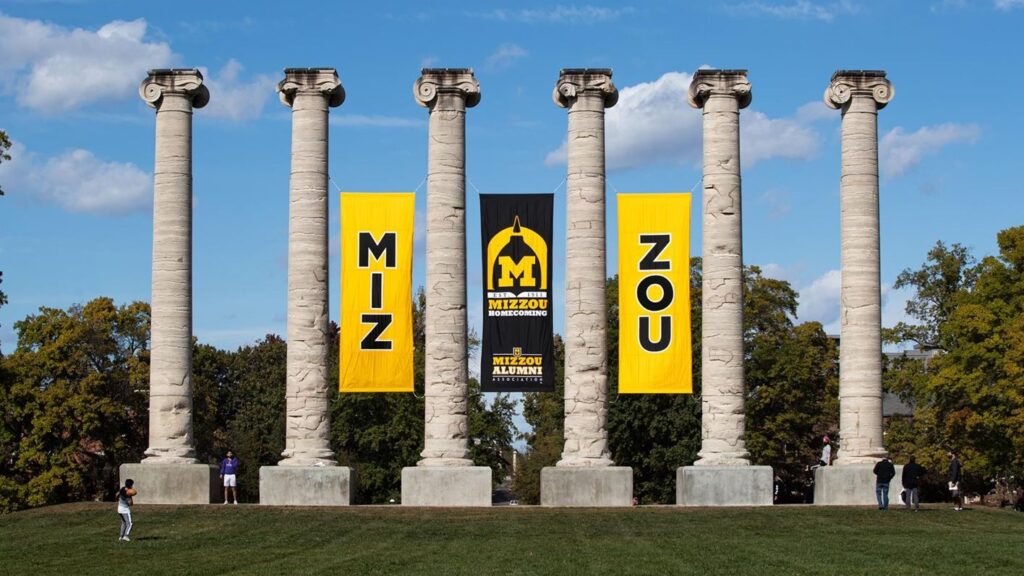Bill would tie Missouri’s higher education funding to graduate earnings
4 min read
The Missouri Legislature would use a scoring system based on the earnings of graduates to allocate funding for higher education under a proposed bill.
House Bill 2602, sponsored by Rep. Mike Henderson, R-Bonne Terre, establishes the “University Rewarding Workforce Readiness Act” and the “Two-Year College Rewarding Workforce Readiness Act.” The bill marks the second year that proposed legislation would tie the earnings of graduates to the funding of universities and junior colleges.
“You know, the days where students go just to expand their minds, I can remember when that was a thing,” Henderson said during a hearing of the Higher Education Committee on Feb. 28. “And I think that’s still a good thing that we do at times. But as a person who’s paid for two students who went to college, I personally wanted to do more than just expand their minds. I wanted them to be prepared to be able to get a job where they could take care of their family, kids, and for the future.”
The bill proposes each university will be evaluated on a weighted system and given a performance score based on the following:
- average annual earnings of students who matriculated at the university six and 10 years prior, are currently employed, and are not currently enrolled in postsecondary education, with a 30% weight;
- average annual earnings of students who are federal Pell Grant recipients and matriculated at the university six and 10 years prior, are currently employed, and are not currently enrolled in postsecondary education, with a 25% percent weight;
- the proportion of students who are federal Pell Grant recipients at the university, with a 20% weight;
- the proportion of students who completed a bachelor’s or master’s degree in education, law enforcement, corrections, or social work at the university five years prior and are currently employed in Missouri by an employer in the corresponding field, with a 15% weight;
- the proportion of students who graduated from the university one year prior and are enrolled in graduate education or employed in Missouri above the high school threshold earnings, with a 10% weight.
Lawmakers took no action on the bill Monday.
During questioning by Rep. Barbara Phifer, D-St. Louis, Henderson stated the bill’s concept comes from the Cicero Institute, a Texas-based nonprofit whose mission is to apply “innovative energy of America’s leading technologists and entrepreneurs to broken systems in the public sector to advance liberty and opportunity for all Americans.”
“One of the things I keep hearing on the floor of the House is that we need to stop relying on out-of-state organizations to come in and tell us how to run this state,” Phifer said.
Other committee members questioned the bill’s timing, stating the legislature hasn’t adequately funded higher education during previous sessions.
Henderson replied he is open to modifying the bill to accommodate and reflect Missouri’s higher education systems. He said Arkansas, Kentucky and Tennessee all use performance ratings for funding higher education.
“I think it’s a tremendous opportunity for Missouri to put some accountability around the process of how we do this and also incentivize outcomes,” Rep. Derek Grier, R-Chesterfield, said. “I think that’s what our constituents want. We hear it again and again, especially the last year or two.”
Jared Meyer, director of advocacy and senior fellow at the Cicero Institute, testified Texas’ state technical colleges switched its funding formula to performance-based outcomes eight years ago, but the Missouri bill isn’t a replica and would be phased in over several years.
“Once the (Texas) formula was put in place, they had the incentive to increase alumni success,” Meyer said. “That’s what they focused on, so it helped jumpstart the successes they saw with higher graduation rates, higher earnings and more job placements.”
Paul Wagner, executive director of Missouri’s Council on Public Higher Education, criticized several aspects of the bill. He told the committee the state would benefit from an agreement on goals for higher education.
“You need to identify measures that are directly related to those goals and then you need to identify which of those factors are within the control of a higher education institution,” Wagner said. “If you want institutions to improve in some way or improve some outcome, you need to pick items they have some control over. I think it’s very questionable whether institutions have a whole lot of control over how much – whether people get jobs or not – (graduates) are earning. And we certainly don’t have control retroactively to go back in time for the foreseeable future, trying to get people who’ve already graduated and somehow cajole them to earn more money.”
This article was originally posted on Bill would tie Missouri’s higher education funding to graduate earnings







